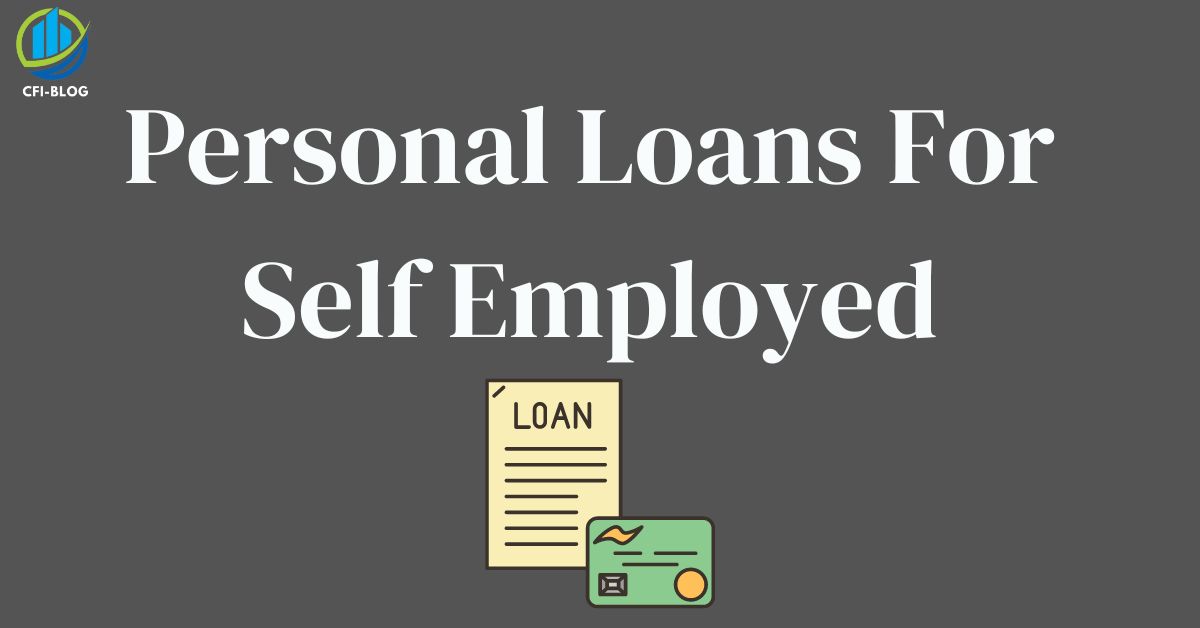Regardless of your industry, being self-employed can have its benefits and drawbacks. One such drawback can often be finding funding for your business. This is where self-employed loans can come in handy. As the name suggests, these are loans designed specifically for people who are self-employed.
In this blog, we’re going to take a look at some of the latest ways to apply for a self-employed loan, as well as what you need to know about the process. So whether you’re just starting out on your own or you’ve been self-employed for a while now, keep reading for our top tips!
What are Self Employed Loans?
Self-employed loans are a type of financing that is available to business owners who do not have a traditional 9-to-5 job. These loans can be used for a variety of purposes, including working capital, equipment purchases, or expansion. While these loans typically have higher interest rates than traditional loans, they can be a viable option for business owners who might not otherwise qualify for financing.
These loans are typically repaid over a shorter timeframe than traditional loans, which means that business owners will need to have a solid plan in place for how the loan will be used and repaid. However, with careful planning and execution, loans for self-employed can be a helpful tool for business owners looking to grow their businesses.
What Documents are Required for Personal Loan for Self-Employed?
When applying for a personal loan as a self-employed individual, you’ll likely need to provide additional documentation to prove your income. While requirements may vary by lender, some of the common documents you’ll need to provide include: proof of income, tax returns, bank statements, and asset statements. Providing these documents upfront can help streamline the application process and prevent delays in getting approved for your loan.
Proof of Income
When applying for a personal loan, you’ll need to provide some form of proof that you have a steady income. For self-employed individuals, this may include providing tax returns, profit and loss statements, or 1099 forms. These documents will help the lender verify your income and determine if you’re able to repay the loan.
Tax Returns
Self-employed individuals are usually required to provide copies of their tax returns from the past two years. This helps the lender verify your reported income and get an idea of your financial history.
Bank Statements
Lenders will often request bank statements from the past few months to verify your account activity and identify any red flags. For self-employed borrowers, this may include looking for large deposits that could indicate undeclared income.
Asset Statements
If you own property or other assets, you may be asked to provide proof of ownership when applying for a personal loan. This helps the lender determine whether you have any equity that could be used to repay the loan if you default on it.
How many loans Can a Self-Employed Get?
“What is the maximum limit of borrowing money from self-employment loans” is one of the most searched questions. In general, a loan of $5000 is the average amount that most people borrow. These loans have similar features that resemble loans.

Pre-qualifications cover the statement of the profit that you monthly receive. Your need for borrowing will be shown by a fast pre-qualification. Self employed personal loans without income proof depend on your credit reports (in some cases), tax returns, and your bank account state.
How Can I Get a Self Employed Loan?
If you think of borrowing self employed loan then your decision must be based on the Interest rate. You should compare the interest rate of the best lenders and notice if they fluctuate or not. Reviewing from finance consulting sites can be the simplest way to go through the ratings of lenders.
When you find a suitable lender, also know if they provide customizing loans for their clients. The interest rate of personal loan for self employed will be variable for clients who have bad credit scores.
Ways to Apply for Personal Loan for Self Employed
For online loans self employed, you can get the required information by reviewing websites about the features of creditors. They check out the lenders by the following points:
- Rating of the loan agreement
- Rate of Interest
- Document processing charges
- Limit of borrowing amount
- How long does it take to make a decision
- Processing fees charges
What Should You Consider before Applying for Emergency Loans for Self-Employed?
Before taking steps to apply for emergency loans for self-employed, you have to cover these qualifications for the online loans self-employed.
- A user should be 18 years old.
- Citizen of America
- Contact details like phone number, address, and email account must be valid.
The lender will go through some details so that it will be easy for them whether you are the right person to give the loan or not to make a decision.
- Level of your income
- Which kind of loan do you want to borrow
- Your required amount of loan
- Your qualification
What Should I Know Before Applying for a Loan?
It is also mandatory to know the connection between the rate of interest and your earnings. Online private lenders are liberal of different borrowers’ terms. Interest, however, differs based on earnings. Not displaying the value of income is the result of growing interest.
So, whosoever applies with demonstrated income personal loan for self employed can get a comparatively lower rate of interest.
The satisfaction of the borrower also matters for the lenders. For your online loans self-employed for payments to be monthly taken out of your account, the lenders are providing to arrange the mode of autopay. Like this, you will not forget to manage the method of payments on time. All of this helps to improve the history of credit.
Frequently Asked Questions (FAQs)
Q.1- What is a good reason to tell the bank about a personal loan?
Here are some aspects in which a user will get a working reason whenever they think of applying for a personal loan.
- Renovation of your home
- Facing Unexpected expense
- Consolidate other running debts
- Enlarging the credit history
- Large Purchase
Q.2- Can I get a loan after 1 month of the job?
Each lender has its method of granting loans. Some loan borrowers have lower requirements and some have many. It depends on your salary and your job profile. It can be possible even after 1 month of salary, just lenders can also see how you are tied with the agreement in your job. The documents of the history of where you used to work earlier can also prove to be helpful for you in taking a loan.
Conclusion
Despite the many changes in the self-employed loans industry, it’s still possible to get a loan as a self-employed individual. By knowing your options and what lenders are looking for, you can increase your chances of being approved for a loan. The best way to start is by comparing different lenders and their products.
Author Profile
- Meet our Author of Our Editorial Team, Susan Anderson. She is an experienced writer and financial expert who has been writing about credit cards, card offers, services, and other related topics for more than twenty years. With her in-depth knowledge on the matter and her ability to distill complex topics into useful information for readers, Susan has become a go-to source for reliable credit card advice. In addition to her work at the editorial team, she also contributes to major publications such as The Wall Street Journal and CreditCards.com. With her expertise and industry experience, she is able to provide sound advice on all aspects of credit responsibly while helping people save money in the process.
Latest entries
 LoanMarch 16, 2023Bad Credit Personal Loans Guaranteed Approval $5 000 (Experts Pick)
LoanMarch 16, 2023Bad Credit Personal Loans Guaranteed Approval $5 000 (Experts Pick) LoanMarch 16, 2023How to Get Approved for a Cell Phone with Bad Credit: Guide
LoanMarch 16, 2023How to Get Approved for a Cell Phone with Bad Credit: Guide LoanMarch 16, 2023Need a Loan Been Refused Everywhere – Some Effective Solutions
LoanMarch 16, 2023Need a Loan Been Refused Everywhere – Some Effective Solutions LoanMarch 16, 2023No Credit Check Loans Guaranteed Approval : Top 10 Lenders
LoanMarch 16, 2023No Credit Check Loans Guaranteed Approval : Top 10 Lenders


